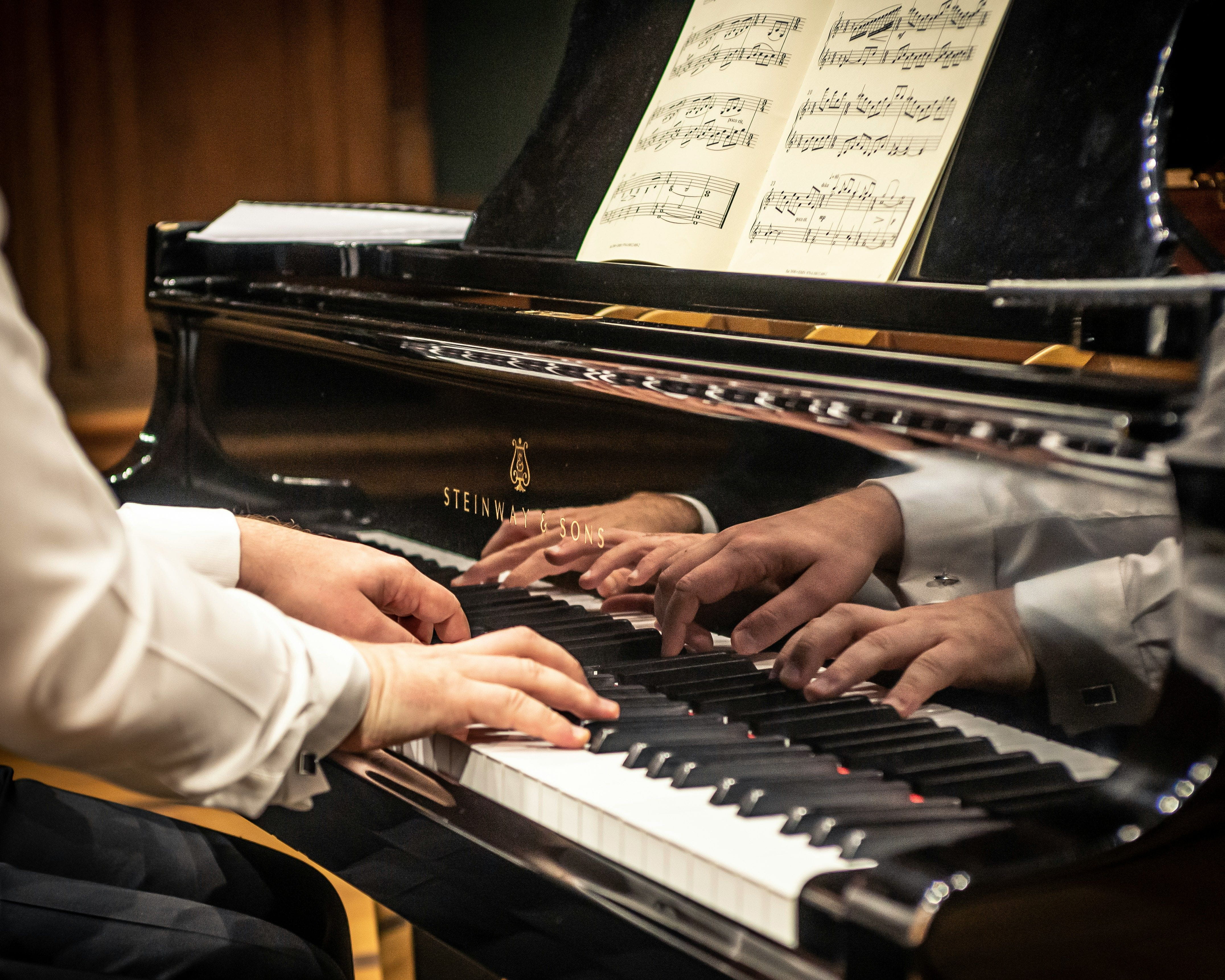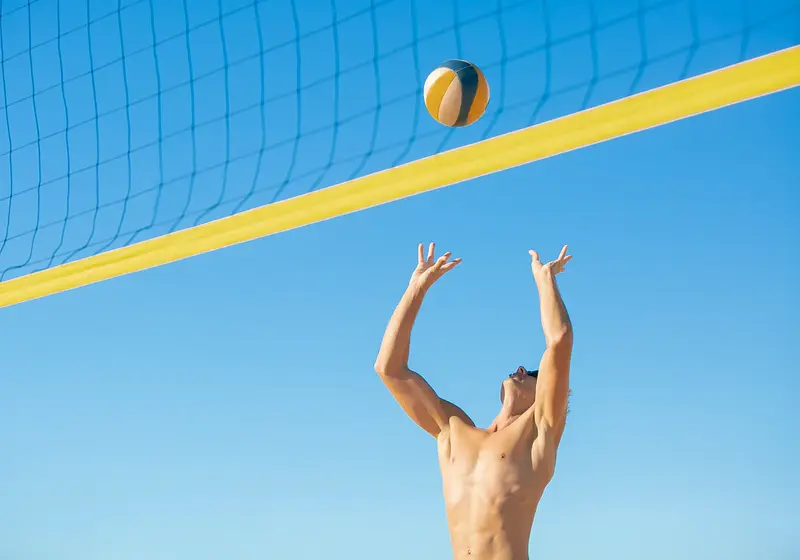The mental component of being a student-athlete is often expounded upon. In this age, when mental health is a prevalent topic in our culture, it makes sense. And indeed, balancing school, sports, and time for friends and hobbies is hard.
An imbalance causes stress, sadness, and anxiety. However, there is a whole other side to being a student-athlete: the physical side. Not so much the sport itself, but the toll it takes on your body regardless of the specific sport. And believe it or not, school can take a physical toll on your body: and it can have dire consequences. In this article, I will go over tips for managing your physical health, both as a student-athlete, and for those who are musicians. These tips all come from personal experience, unfortunately. I hope you will not fall into similar issues as I do and will follow these tips as needed.
Let us slide into your dms 🥰
Get notified of top trending articles like this one every week! (we won't spam you)Physical Health for Students
There is still a risk for physical damage even if one does not play a sport. Or if one focuses on school over anything else, the same damage can occur.
These injuries can include muscle tension, tendinitis, and headaches. Although it is necessary to study to keep one's grades up, these injuries can be prevented by properly balancing studying with aspects of life that do not include sitting in a chair. In the case that you are experiencing some of these issues, follow these tips to prevent these issues from securing themselves too securely in your life.

Image Credit: Tim Gouw from Unsplash
Muscle Tension
Sitting in a chair for too long in the same position easily causes muscle tension. If you are experiencing muscle tension, first ask yourself these questions:
- Does my chair have a back? If you are studying for long periods of time, it is beneficial to get a chair that your back can rest comfortably on.
- Am I sitting all the way back in my chair? Your back and shoulders may become strained if you are not resting in your chair.
If you answered yes to these questions but are still experiencing muscle tension, follow these tips:
- Take breaks. Although this is frustrating, (believe me, I know) for your long-term ability to study, take breaks if you are experiencing muscle tension. It will only get worse if not.
- Invest in a shoulder heating pad. Here is a link to the one I have: shoulder heating pad. I like to take at least thirty minutes to use the heating pad while sipping on coffee or reading a book.
- Eliminate phone usage. In myself, I have noticed that constant scrolling induces shoulder and neck pain on the side where I use my phone.

Image Credit: Flip Snack from Unsplash
I would advise taking preventative measures as soon as you start feeling pain. If not, it can develop into a way worse problem: tendinitis.
Tendinitis
Unfortunately, I have spent the past year dealing with tendinitis. I had to voice type many of my essays and worksheets for school. Although my problem was a result of my over-practicing instruments, the same issue can occur with extreme hand usage in anyone. For students, this could be a result of over usage on the computer or writing too much.
I will expound more on this issue in the musician section.
Headaches
Staring at small print or a screen for too long can induce headaches, even for those who do not need glasses or contacts. Ironically, staring at small print too much can cause the need to get glasses.
If you are experiencing headaches, ask yourself these questions:
- Is my study space well-lit? You may need a desk lamp as well as your room light.
- Have I had my eyes checked lately? You may need glasses
- Finally, as with every issue, taking breaks is imperative to keep headaches from worsening. Pushing through the pain will not solve the problem.
Take the Quiz: What Type of Notes Should I Take?
Discover the best note-taking method for your learning style!
Physical Health for Athletes
Out of the three categories of people in this article, it is arguably the most obvious that athletes need to pay the most attention to their physical health. Although the nature of sports can vary greatly, each athlete must pay special care to their health, regardless of the sport.
Sports take a tremendous toll on one's body, whether one realizes it or not. For athletes, preventative measures are important. This means that whether or not one feels physical pain, preventative measures need to be taken so that it does not happen. Once one is injured, it takes weeks to months to recover and be fully back to the sport.

Image Credit: Brian Matangelo from Unsplash
Most importantly, stretch and roll out regularly. As a track athlete, we run a lot (obviously), perhaps more than other sports who get a break through their games from running. If you do an endurance sport, such as swimming or running, it is most imperative that you stretch more than you think you need to. My physical therapist recommends stretching at least 3-4 times a day.
Here are some preventative measures:
- Stretch before and after every practice. I try to stretch at least twice more throughout the day as well
- Roll out. Foam rollers are great. Use lacrosse balls for smaller places such as specific arm muscles and feet.
- Take an ice bath. This is great if you are starting to feel pain.
- Take an epsom salt bath. This is great if you just feel generally sore.
- Ice even if you feel no pain. Many athletes use ice only if they are injured. However, I have found it beneficial to use ice on specific areas simply as injury prevention.
My final tip is not to overdo it. If you feel pain, immediately tell your coach. They will not be angry at you, or think that you are “trying to skip practice.” If they have any sort of athletic experience, they will know how fast problems can escalate.
It is so tempting to want to push through the workout. But be strict with yourself. Do not push through the pain, it only gets bad very fast.

Image Credit: Gwendolyn Kwong from Unsplash
Physical Health for Musicians
At top levels of performance, music becomes physically taxing as well: it takes not large muscle movements, but small ones to play an instrument. Usually, these muscles are constrained to the ones in the arms, shoulders, neck and hands. If one is practicing multiple hours a day, it is easy to quickly develop muscle tension and exhaustion.
This is especially true if one is not working with a balanced lifestyle, which was the issue in my case. I practiced too much and did not offset the hours I was practicing with equivalent physical activity to remove the muscle tension that my practice caused.

Image Credit: Ludomil Sawicki from Unsplash
Here is a quick checklist to go through if you are experiencing some tension.
- Is your instrument too small for you? Often the size of instruments depend on the size of the player. If your instrument does not fit you, your muscles are working extra hard to produce the same sound. Ask your private teacher if your instrument is the correct size.
- Are you practicing with proper technique? This is especially important for musicians currently working on virtuostic pieces. Proper technique is necessary to make sure your muscles are working the least while still being able to play at the speed necessary. Once again, using improper technique puts unnecessary strain on your muscles. I find it helpful to take a few minutes at the beginning of every practice session to play a single note over and over, practicing relaxing and proper positioning.
Once again, do not push yourself. One year ago, I had no idea you could get so injured from over-playing a musical instrument. If you begin to feel pain, stop immediately.
Just like with an athletic injury, it only gets worse if you push through the pain. If not, you may develop tendinitis, which I promised I would elaborate on in this section.

Image Credit: Standsome Worklifestyle from Unsplash
Tendinitis
Tendinitis is the inflammation of your tendons. It can occur anywhere, including shoulders, elbows, knees, and arms. It is not isolated to only musicians.
Tendinitis develops whenever there is an overuse of certain groups of tendons. I know a lacrosse player at my school who developed tendinitis in her foot, and a cross-country runner at a nearby school who developed tendinitis in his knees.
As musicians, tendinitis may develop in arms, hands, and shoulders. As repeatedly stated, it can be avoided by balancing your practice with physical activity. Balance is truly the key to health: physical or mental.
But let's say you do develop some tendinitis. What can you do? Here are some remedies that I have used over and over the past year:
- Blue Emu cream. Out of all the pain-relief creams I tried, this one worked the best.
- Once again, the shoulder heating pad.
- Wrist braces that prevent your wrists from having to move more than is necessary.
- Forearm ice packs. These worked wonders to bring down inflammation.
- Any generic heating pad to warm up muscles before doing any work.
Tendinitis takes weeks to months to recover from. If possible, control the causes before having to deal with the effects.

Image Credit: Payam Tahery from Unsplash
Conclusion
The key to maintaining physical health as a student, musician, athlete or any combination of the three is balance. Combine both lesser activity with more activity and use different muscle groups throughout the day. Living a balanced lifestyle will keep your body healthy for as long as possible.


















